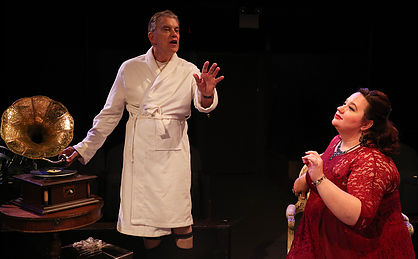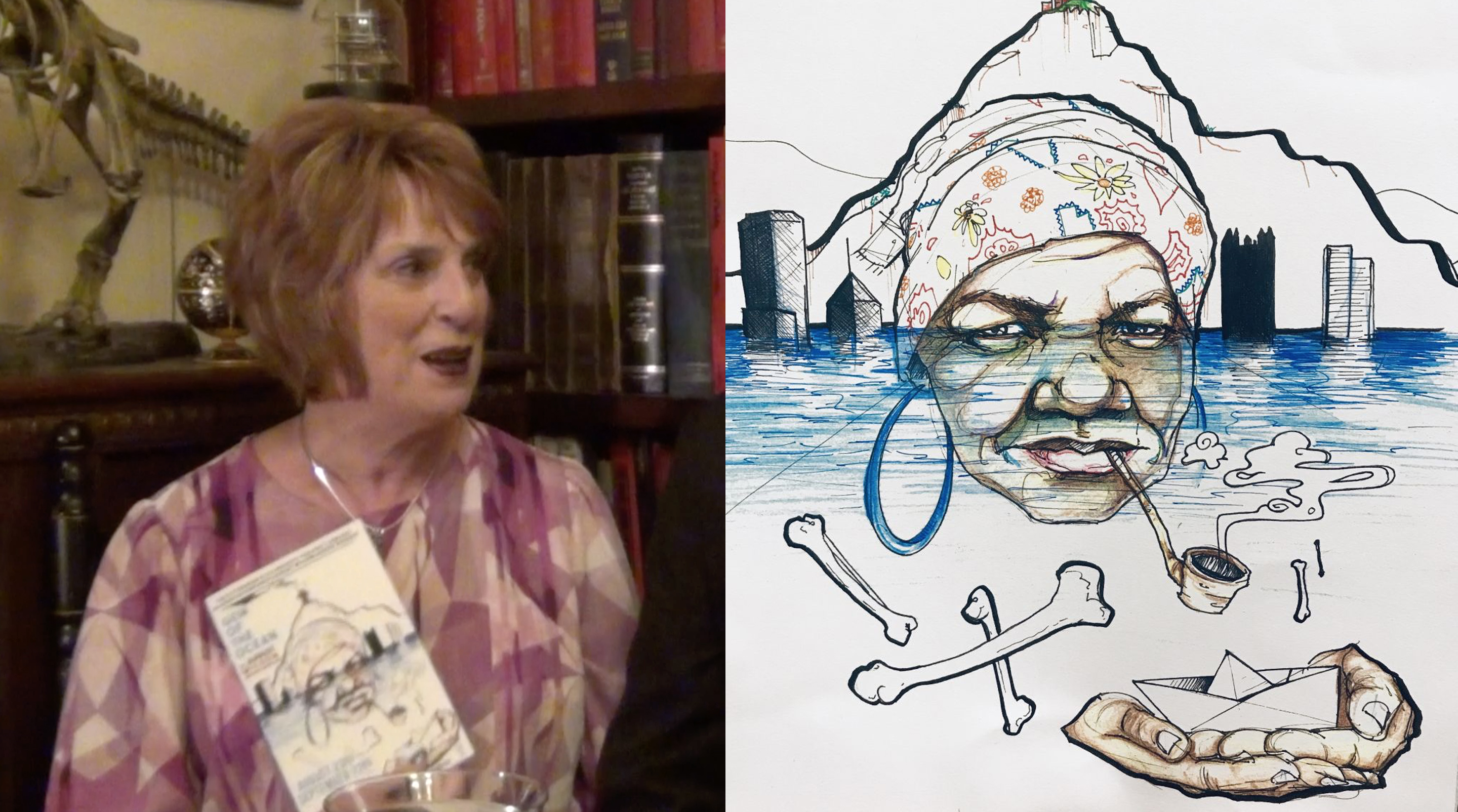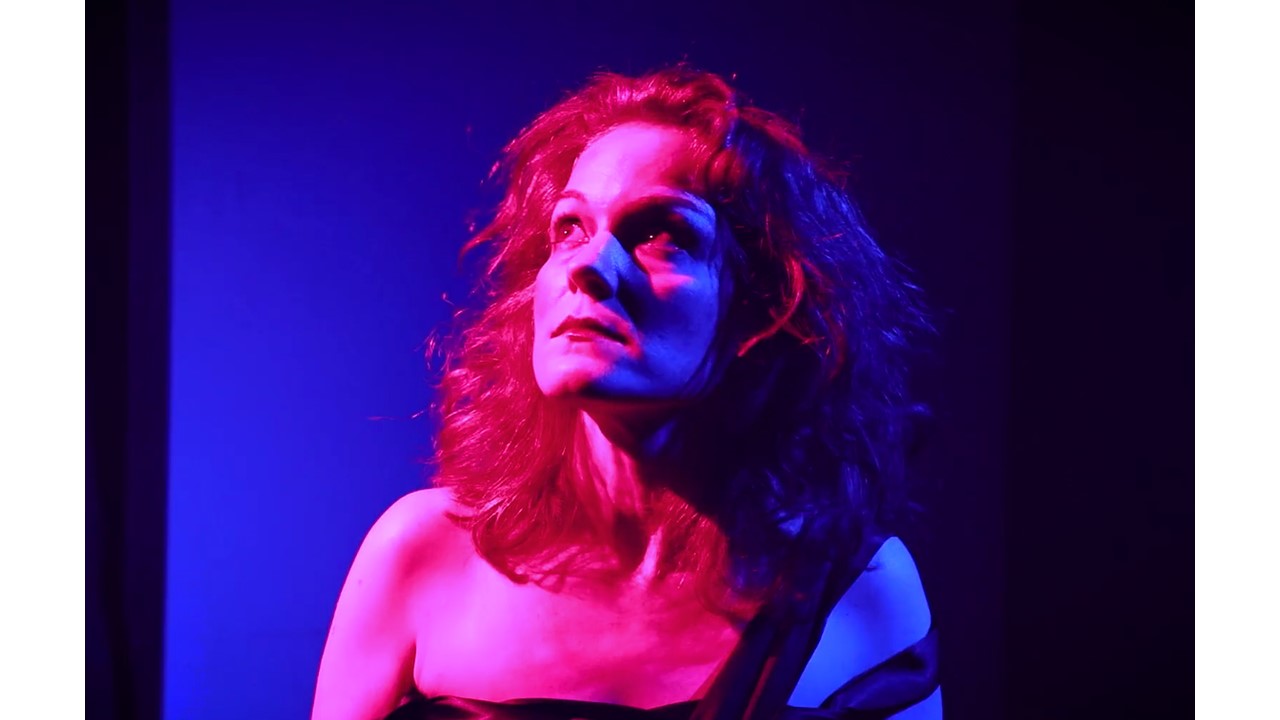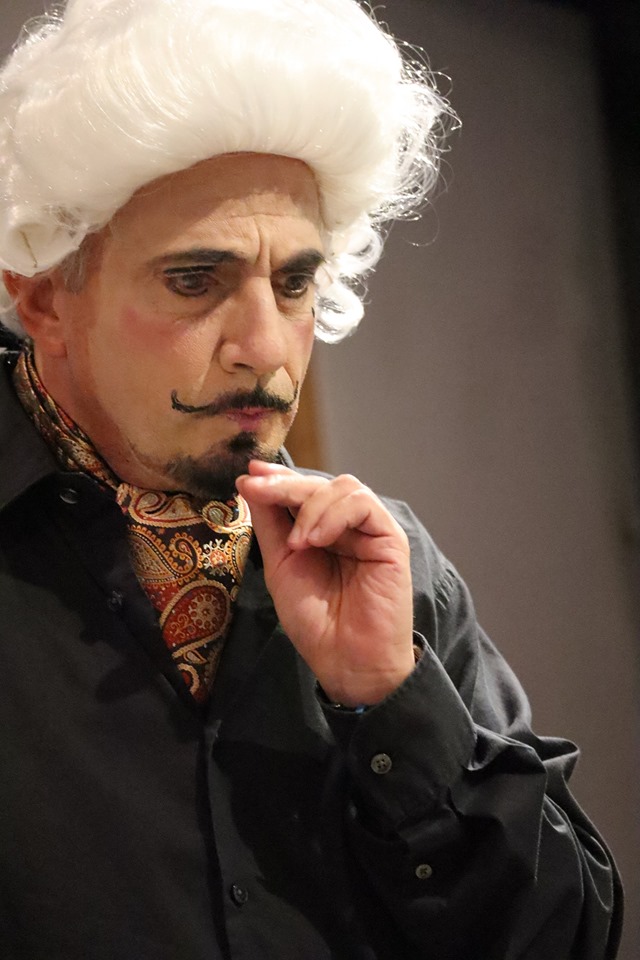By Claire DeMarco, ‘Burgh Vivant
Add three tenors, one wife, two girlfriends, and a hotel bellhop who sings. Multiply misunderstandings, mistaken identities, assumed infidelities. Divide loyalties among friends and partners. Subtract any semblance of sanity. And you have a formula for disaster in Ken Ludwig’s zany “A Comedy of Tenors!!!”
In 1936, Henry Saunders (Dewayne Curry), the producer of a lavish upcoming operatic event in Paris, is fraught with anxiety and wants this show to be a success. Max (Ryan Frank) is Saunders’ assistant (and son-in-law) and fixer – who tackles any and all of Saunders’ problems – real or imagined.
Tito Merelli/Beppo (Warren Ashburn) arrives at a plush hotel. The star of the concert is larger than life. He is an aging Italian tenor is sensitive about his advancing age and believes his wife Maria (Joyce Miller) is having an affair.
Maria, an emotional woman, is always there for her husband. Married for twenty-five years, Maria and Tito have a daughter, Mimi (Elizabeth Glyptis), an aspiring actress. Mimi has come to Paris for the concert.
When one of the headlining tenors bows out suddenly Saunders becomes even more agitated. He and Max need to find a replacement, or the show will be ruined.
Carlo (Colin Burns) saves the day. However, Tito refuses to work with him and refuses to perform. Coincidentally, a bellhop is in the hallway singing.
Enter Beppo, the bellhop. In addition to his lovely tenor voice, he looks like Tito and he’s also Italian.
To add to the mix Tatiana Racon (Candice Fisher), a famous Russian singer is also in town preparing a concert of her own.
Somehow everything is going to come together in this manic farce. But how?!

Farces are notoriously difficult to pull off. The physical maneuvers and mannerisms of all the actors must be in sync in order to produce a cohesive, hilarious show. This production succeeds on all counts.
Ashburn is excellent as Tito and Beppo and he brings such nuances to each character. The audience always knows which part he’s portraying. Both characters have an Italian accent but Beppo’s is gentler, more working class than Tito’s. Ashburn’s comedic portrayal of Beppo is spot on.
Miller delights with her facial expressions and physical comedy. Her Italian accent is authentic and never falters.
Curry’s stamina as the rattled event producer and manager is impressive.
Frank nails his portrayal of the long-suffering, gentle assistant and son-in-law.
Glyptis transforms her character as she seamlessly changes from an aspiring actress to a fiercely supportive partner.
Burns makes his physical gyrations look awkward but pulling that off is difficult and requires great control.
Fisher’s facial expressions and movement in her interlude with Tito are priceless. She has great comedic presence.
Bravo Joe Eberle for fantastic direction. Eberle manages to get some frenetic movement out of the actors in a tight space.
-CED
“The Comedy of Tenors” is a production of Little Lake Theatre Company, 500 Lakeside Drive, Canonsburg, PA 15317. It runs from September 5 to September 21, 2019. For more information, click here.


















